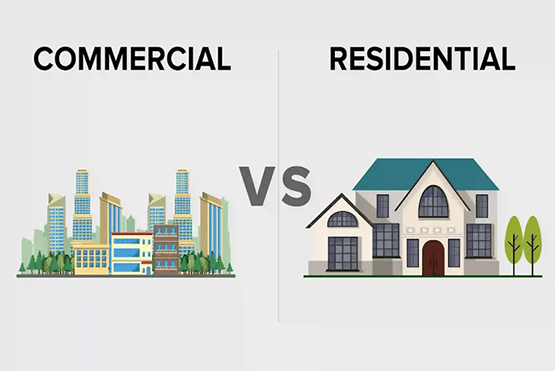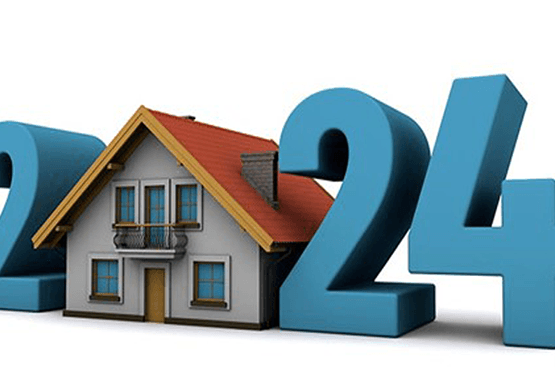In the vibrant landscape of Ghana’s real estate, investors are constantly seeking opportunities in both commercial and residential properties. This composition will explore the Investment Trends: Commercial vs. Residential Real Estate in Ghana. We will explore the nuances of these markets, providing insights and guidance for prospective investors. Join us on this journey to understand how to navigate the Ghanaian real estate sector successfully.
Investment Trends: Commercial vs. Residential Real Estate in Ghana
Ghana’s real estate sector has seen remarkable growth in recent years, attracting local and international investors. To make an informed decision, it’s crucial to understand the dynamics of both commercial and residential real estate.
The Commercial Real Estate Landscape
-
The Thriving Commercial Real Estate Market:
Ghana’s bustling cities, such as Accra and Kumasi, have witnessed a surge in commercial real estate projects. Investors are drawn to the potential for high returns in this market.
-
Key Investment Sectors:
The commercial real estate market in Ghana spans various sectors, including office spaces, retail outlets, and industrial properties. Each sector has its unique opportunities and challenges.
-
Government Initiatives:
The Ghanaian government’s commitment to improving the business environment has positively impacted the commercial real estate sector. Investors can benefit from incentives and a more conducive regulatory environment.
-
Challenges in Commercial Real Estate:
While the potential for returns is high, investors must also know about challenges like market volatility and fluctuating demand.
-
Rental Yields:
Understanding rental yields is crucial for assessing the profitability of commercial properties. High-demand areas tend to offer better rental yields.
Residential Real Estate in Ghana
-
The Residential Property Landscape:
Ghana’s growing population and urbanization have driven the demand for residential properties. This sector offers stability and long-term income potential.
-
Housing Deficit:
Ghana is currently grappling with a housing deficit, making it an attractive market for residential real estate investors. The demand for affordable housing is especially high.
-
Residential Property Types:
Investors can explore various residential property types, including apartments, detached houses, and townhouses. The choice should align with the target market and investment goals.
-
Regulations and Documentation:
Understanding the legal framework and documentation process is essential in residential real estate to avoid complications.
-
Property Management:
Effective property management is crucial for maintaining rental income and the overall value of residential investments.
FAQs
Q: What is the current state of the real estate market in Ghana?
A: The real estate market in Ghana is experiencing significant growth, with both commercial and residential sectors attracting investors. The government’s initiatives and the housing deficit make it a promising market.
Q: Which is a safer investment option, commercial or residential real estate?
A: Both commercial and residential real estate have their advantages and risks. The choice depends on your investment goals and risk tolerance. Commercial real estate often yields higher returns but can be more volatile.
Q: Are there any restrictions on foreign investors in the Ghanaian real estate market?
A: Ghana welcomes foreign investors, and there are no stringent restrictions. However, it’s essential to familiarize yourself with the legal requirements and seek local advice.
Q: What are the key cities for real estate investment in Ghana?
A: Accra, Kumasi, and Tema are among the top cities for real estate investment in Ghana. These cities offer diverse opportunities in both commercial and residential sectors.
Q: How can I assess the potential rental yield of a property in Ghana?
A: To assess rental yield, calculate the annual rental income as a percentage of the property’s purchase price. Higher rental yields indicate better returns.
Q: What role does infrastructure development play in real estate investment in Ghana?
A: Infrastructure development, such as road networks and utilities, significantly influences property values. Areas with better infrastructure tend to attract more investors and offer higher growth potential.
Conclusion
Investment Trends: Commercial vs. Residential Real Estate in Ghana offers diverse opportunities for investors. Whether you choose the fast-paced commercial market or the stability of residential properties, Ghana’s real estate sector is ripe for exploration. To succeed, stay informed, conduct thorough research, and consider seeking local expertise. By making informed decisions, you can navigate the Ghanaian real estate market with confidence and potentially reap the rewards it has to offer.





